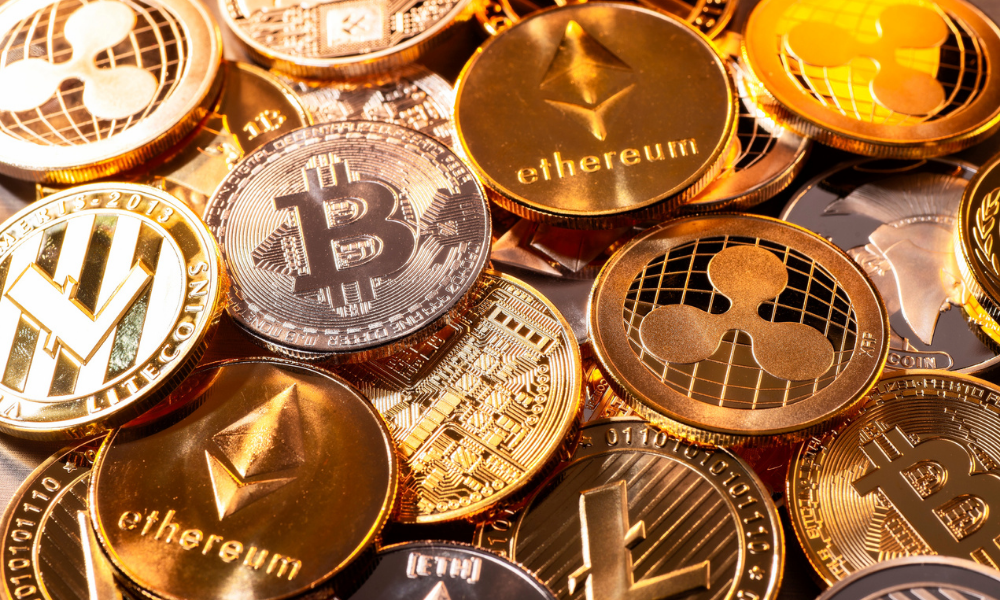Horizons ETFs CEO tells WP that cryptocurrency is ‘amazing’ from a trading perspective but is not yet a viable investment vehicle

Crytocurrency investors have been given stark reminder of the volatility in the space after Bitcoin tumbled below $35,000 on the back of fresh China curbs and series of tweets from Tesla boss Elon Musk.
The biggest cryptocurrency has erased all the gains it clocked up following Tesla’s announcement that it would use corporate cash to buy the asset and accept it as a form of payment for its vehicles. Ethereum, the second-biggest coin, sank more than 40%, while joke token Dogecoin lost 45%.
Bitcoin has dropped more than 40% from its record of almost $65,000 set in April. Musk sparked this collapse after criticizing the currency’s energy use and posting that Tesla would suspend car purchases using the token. Other social media utterances have been erratic and whipsawed the crypto community.
Steve Hawkins, CEO of Horizons ETFs, told WP the current volatility only reinforced his view on Bitcoin – that it’s the perfect day-trading vehicle but not yet a viable investment vehicle.
He said: “Bitcoin is now the most volatile asset class in the world. It’s more volatile than volatility itself, which is amazing from a trading perspective, not for an investment vehicle perspective, especially for investment advisors who, a lot of times through market volatility, have to hold the hands of their underlying clients.
“That’s why financial advice is never going away from a person-to-person perspective because people need to be comforted about what they're investing in.
It’s almost impossible to do that right now with respect to cryptocurrency. They’ve made great gains and that’s one thing but it’s such a volatile underlying asset class.”
In terms of an investment proposition, Hawkins is much more enthused, from a risk perspective, of investing in the underlying infrastructure for crypto assets and blockchain technologies. Horizons ETFs Big Data & Hardware Index ETF (HBGD) provides exposure to these companies focused on blockchain technology, semi-conductors for the mining of blockchain, and cloud computing, which is the infrastructure for crypto assets.
The provider also offers its Bitcoin ETF (HBIT) and its Inverse Bitcoin ETF, which is design to enable investors to take advantage of volatility (by going long or short) that Hawkins expects will stay with us for quite some time until its more broadly accepted as a store of value. Many comparisons are made with gold but the CEO said there is a physical demand for bullion and real world application in its every day use, something that just doesn’t exist for cryptocurrency.
“Until there is real world applications, widespread acceptance and use of Visa or MasterCard or something like that, this volatility is here to stay for quite a while,” he said.
Trading Bitcoin through an ETF is preferable to futures or with the currencies directly. Getting in and out is “astronomically” expensive through trading platforms. Unlike an exchange, there is no insecurities with respect to hacking, market turmoil or regulators attacking those exchanges.
“From a trading vehicle perspective, why would you want to be thinking about any of these other risks when you're all you're doing is trying to get into and out of an asset class the most effectively. The best way to do that is through an ETF, especially an ETF that provides exposure directly to liquid assets, not illiquid assets.”
The current news coverage is unlikely to persuade institutions to open their arms the crypto. Custody remains a huge issue and the regulatory risk remains high, Hawkins believes will prevent the pension funds, for example, investing.
He added: “Some of the banks themselves are actually working on the possibility of storing cryptocurrencies. But it's still so far off. We’re going to need to see some big changes in the underlying acceptance of cryptocurrency assets as a real asset class and a real custody asset that can't be destroyed in any way due to hacking, for example.”
One common misconception that is catching up with investors fast is the misguided belief that gains on the likes of Bitcoin are tax free, particularly among young investors. Whatever platform you’re trading on, the CRA and U.S. authorities will track the trades.
“The CRA is catching up very, very quickly,” Hawkins warned. “That's the thing about tax authorities, they catch up quicker than any other securities regulator! They’re not going to miss a beat on earning that extra dollar. If you're making $1, they're going to be making their 50 cents on that.”



